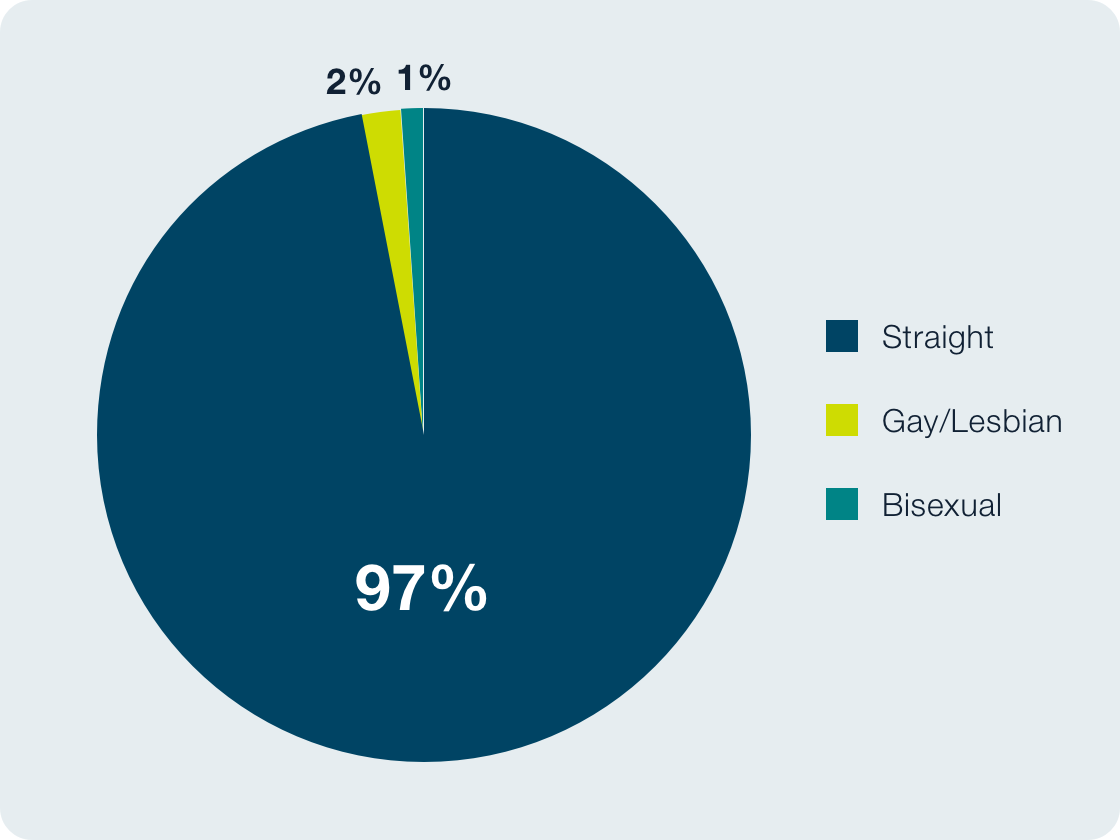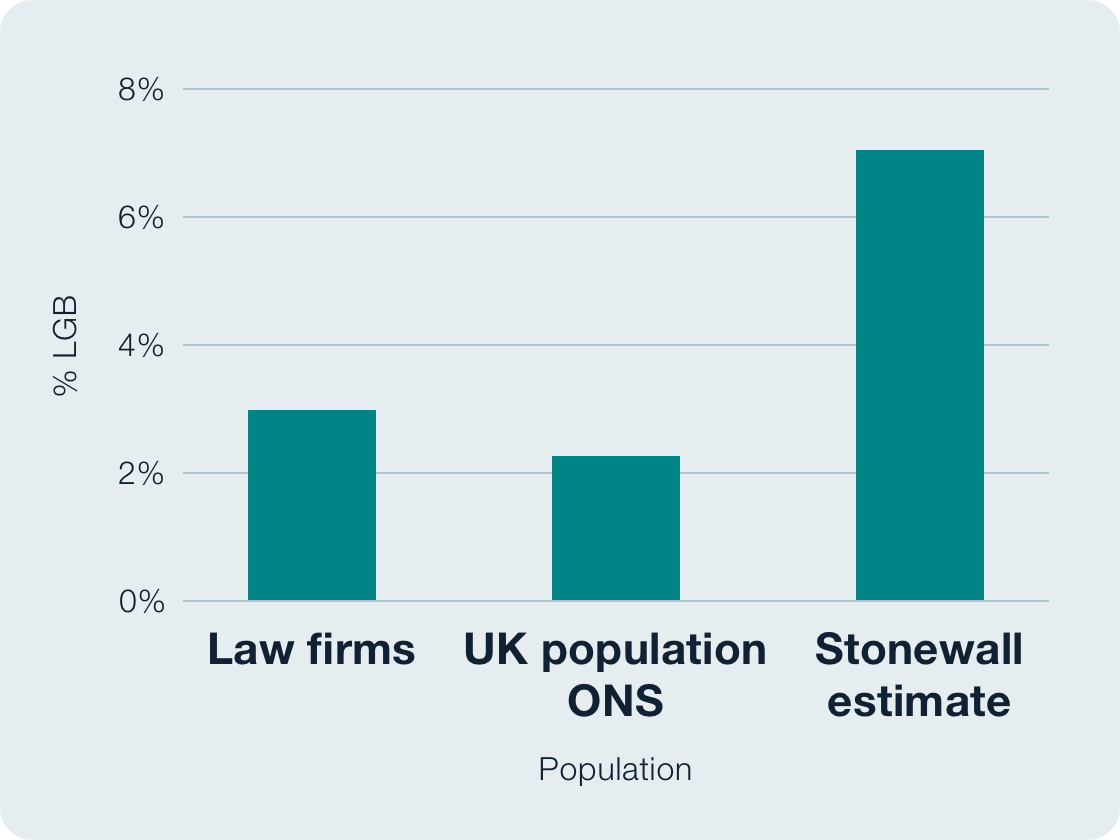Lawyers may not feel comfortable disclosing their sexuality
Data gathered by the Solicitors Regulation Authority (SRA) over the past six years found that the majority of people in law firms identify as straight or heterosexual. It should be noted, however, that 6% of people who answered the SRA’s survey in 2017 provided no answer, or an invalid answer. Similarly, the data for 2019 was flagged by SRA as “containing a high number of those choosing not to divulge the information”, so we may be missing the true picture.
The SRA relied on law firms asking their staff to fill in the survey. Their reluctance to answer questions about their sexuality suggests that some employees might not have been comfortable revealing this information to their employer – even on an anonymous basis.

Sexual orientation in law firms 2019
The legal industry needs to keep pace when it comes to sexual orientation
Looking into the 2017 results also draws up some interesting disparities. In general, only 3% of people in law firms identify as gay, lesbian or bisexual. However, there’s a significant gender difference, particularly when you scale up into the larger firms. While 3% of partners in firms with over 50 partners identified as gay or lesbian in 2017, this represents an average. In reality, 3% of partners in larger firms are gay men while only 1% are gay women. Unfortunately, the lower proportion of female partners overall, and particularly in large firms, is likely contributing to this disparity.
While these figures are concerning, the UK’s legal industry itself is doing well when it comes to LGBTQ+ inclusion – for the most part. UK law firms featured prominently in Stonewall’s 2019 list of top global LGBT employers, suggesting a promising future in the law industry for any of the 2.2% of the UK population who identify as lesbian, gay or bisexual. That said, Stonewall accepts latest government estimates that around 7% of the UK are LGB – so we may still have more ground to cover.

Ethnic mix of students in 2019


